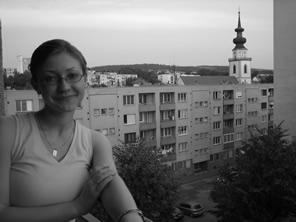Perspectives in Post-Communist Slovakia

With the help of a Summer Undergraduate Research Fellowship (SURF) grant, I traveled to Slovakia where I researched effects of the transition from communism to democracy and capitalism. Most of my time was spent conducting interviews in the town of Myjava, where my extended family has been situated for hundreds of years. With the help of my father, who served as my translator, I collected oral histories from twenty-four people ranging from 18- to 80-years-old. For some, the connection to communism runs deep; for others, “Iron Curtain” is just a phrase from history class.
Although all those interviewed were born and raised in Slovakia, and have lived, for the most part, in the same town, the window from which each sees the world varies significantly. Their recollections of events and viewpoints on the same topics can be, at times, strikingly different.
As a child educated in the United States, I learned from an early age that communism was just about the worst thing that could happen to a country. Even though I heard about some negative aspects of post-communist Slovakia, I always believed that Slovakia’s transition from communism to democracy had been great. Way to go! You've got democracy now!
Before conducting this research, I never truly believed that I would find such mixed sentiments about the fall of communism. For most of the people I interviewed, there exists good and bad in both systems. Some long for the social securities of the communist era; some never believed they would live to see the fall of communism and now have regrets; others waited their entire lives to see the fall of communism.
Each interview will serve as the basis for individual stories that will be compiled into a hand-sewn book. The book and accompanying photographs will highlight the different perspectives regarding Slovakia in the past and present day.
